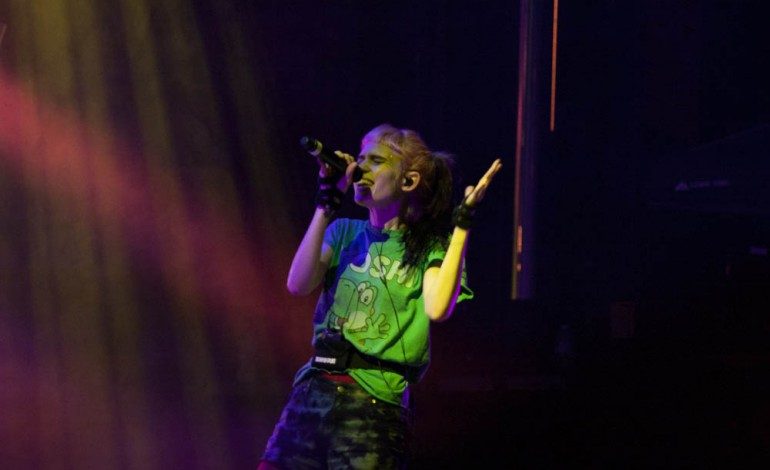

Alternative pop artist Grimes has attracted a large amount of controversy, after claiming that artificial intelligence (AI) will eventually make live music obsolete, before suggesting that humanity is at the end of “human art.” One of the more vocal critics of these comments includes performer Zola Jesus, who called the singer “The voice of Silicon fascist privilege” in a now deleted response tweet.
Grimes responded to Zola Jesus’ comments, stating that she agreed with some of the performers points, but explained that she believed technology was democratizing music. In addition, the performer sought clarification for the “silicon fascist” comments.
4/ Not all art will be good but that’s what art is. What matters is that people are experimenting.
— ༺GRIM ≡゚S༻ (@Grimezsz) November 23, 2019
I would like clarity on the use of the term fascist tho haha
— ༺GRIM ≡゚S༻ (@Grimezsz) November 23, 2019
Zola Jesus responded that while she appreciated a good thought experiment on the subject, Grimes’ comments lacked “nuance and empathy” for performers and their fans.
the lack of nuance and empathy in which you discussed these possible futures on that podcast interview felt like they were coming from someone who has nothing to lose, or doesn’t need to readily interact with possible negative outcomes.
— ZJ (@ZOLAJESUS) November 23, 2019
She also went on to describe what she meant by “silicon fascism,” which she defined as “the neoliberal tech takeover by privileged individuals, creating miniature oligarchic kingdoms of power that will inevitably control once-democratized systems.” Zola Jesus also clarified that she has “an issue with people who are completely disconnected from working class struggles attacking a system that they don’t rely on to survive while others do.” Grimes is currently dating Elon Musk, one of the most prominent figures in the tech industry today.
and silicon fascism to me is the neoliberal tech takeover by privileged individuals, creating miniature oligarchic kingdoms of power that will inevitably control once-democratized systems. run on sentence eat your heart out.
— ZJ (@ZOLAJESUS) November 21, 2019
Devon Welsh of Majical Cloudz was more in support of Zola Jesus’ take on the debate, stating: “Ask yourself, what side are you on? Silicon Valley fascism and the bird’s-eye view of billionaires?”
Glad the Grimes interview has sparked a conversation.
Ask yourself, what side are you on? Silicon Valley fascism and the bird’s-eye view of billionaires?
Music has been our spiritual lifeblood since forever. We have the choice to continue that, but it involves taking a stand.
— Devon Welsh | On Tour in USA! (@devonwelsh) November 21, 2019
Composer and sound artist Holly Herndon, who holds a PhD at Stanford University’s Center for Computer Research in Music and Acoustics, making her a rare expert in the fields of music and programming, also brought her expertise to this debate. Herndon took a middle ground approach, stating that while AI can help push music forward (her latest album PROTO was made with the help of AI), it won’t and shouldn’t replace musicians outright.
“AI most likely won’t replace musicians outright,” Herndon explained. “Sentient AI is a fantasy that I think sometimes distracts (often intentionally) from the political economic things that are happening around the tech at the moment.”
She went on to explain that there are many dangers of allowing AI to create music to represent an artist, especially if that artist is deceased. “I’m not worried about robot overlords,” Herndon elaborated. “I’m worried about democratically unaccountable transnational companies training us all to understand culture like a robot or narrow AI.”
Ok y’all @Grimezsz @ZOLAJESUS here is my 2c on AI and Interdependent music
⛲️ ⛲️ pic.twitter.com/FPGxN1ndPO
— Holly Herndon (@hollyherndon) November 26, 2019
Photo Credit: Owen Ela
